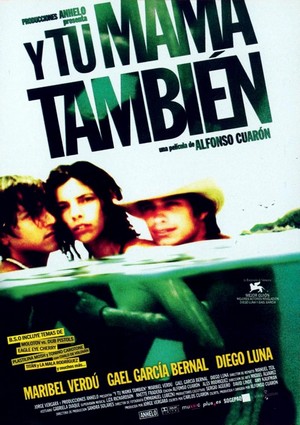
Y Tu Mamá También (2001)
And Your Mama Too

Raiting: ![]() 7,8 /10
7,8 /10
Genre: Drama
Director: Alfonso Cuarón
Stars: Maribel Verdú, Gael García Bernal and Diego Luna
Country: Mexico
Release date: 8 June 2001
Length: 106 minutes


Raiting: ![]() 7,8 /10
7,8 /10
Genre: Drama
Director: Alfonso Cuarón
Stars: Maribel Verdú, Gael García Bernal and Diego Luna
Country: Mexico
Release date: 8 June 2001
Length: 106 minutes